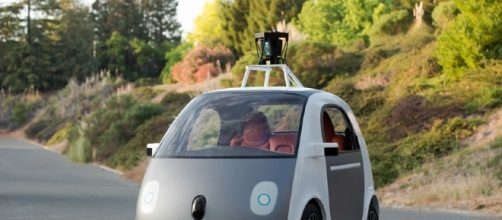By the year 2030, 13 years in the future, private ownership of motor vehicles will be a thing of the past for most people. That is the conclusion of a study conducted by American think tank RethinkX, according to Australian news site RenewEconomy.
Autonomous electric cars are going to take over the roads
In 2030, instead of hopping in your gas guzzling car that has been sitting in the driveway, you will summon an autonomous electric car from a transportation service much like Uber or Lyft. The car will take you to where you want to go, the office, or perhaps a restaurant to meet your date, or wherever.
The moment you get out of the car, it will speed away to pick up another customer.
How economics will drive the switch from private ownership
In the scenario of transportation as a service, people are going to be spared the cost of owning their own vehicle. Individuals will no longer have to pay fuel, maintenance, or insurance costs. All of those costs will be borne by the transportation company from which you rent a car trip.
Moreover, cars in the future are going to be a lot cheaper to build and operate than they are in 2017. Electric Cars will have fewer moving parts. Batteries will only have to be replaced once, thanks to technological advances. Autonomous vehicles will be safer as on board computers will not be prone to human error or road rage.
Such motor vehicles will also be safer as they will be maintained properly, therefore fewer delays waiting by the side of the road for the tow truck due to breakdowns. The new electric cars will have a lifetime of a million miles, five times that of modern motor vehicles.
How the transportation experience will change
Most beguiling, the RethinkX study suggests that a great many of these rides will be free or almost so. Companies may include free rides as part of their benefits package. Some local governments may subsidize car trips as much as they do mass transit. You might even get a free car trip as part of a purchase of another product as an incentive, say a latte and a trip home from the Starbucks.
Presumably, the future electric cars will have the range of modern gasoline powered cars and can be recharged at the same time that it takes to put gas in the tank. Otherwise, this system will be difficult to spread to rural areas. The change will happen rapidly, as soon as government regulators approve of autonomous vehicles that can get from Place To Place without human intervention. The process will start in population-dense urban areas and spread out from there.


